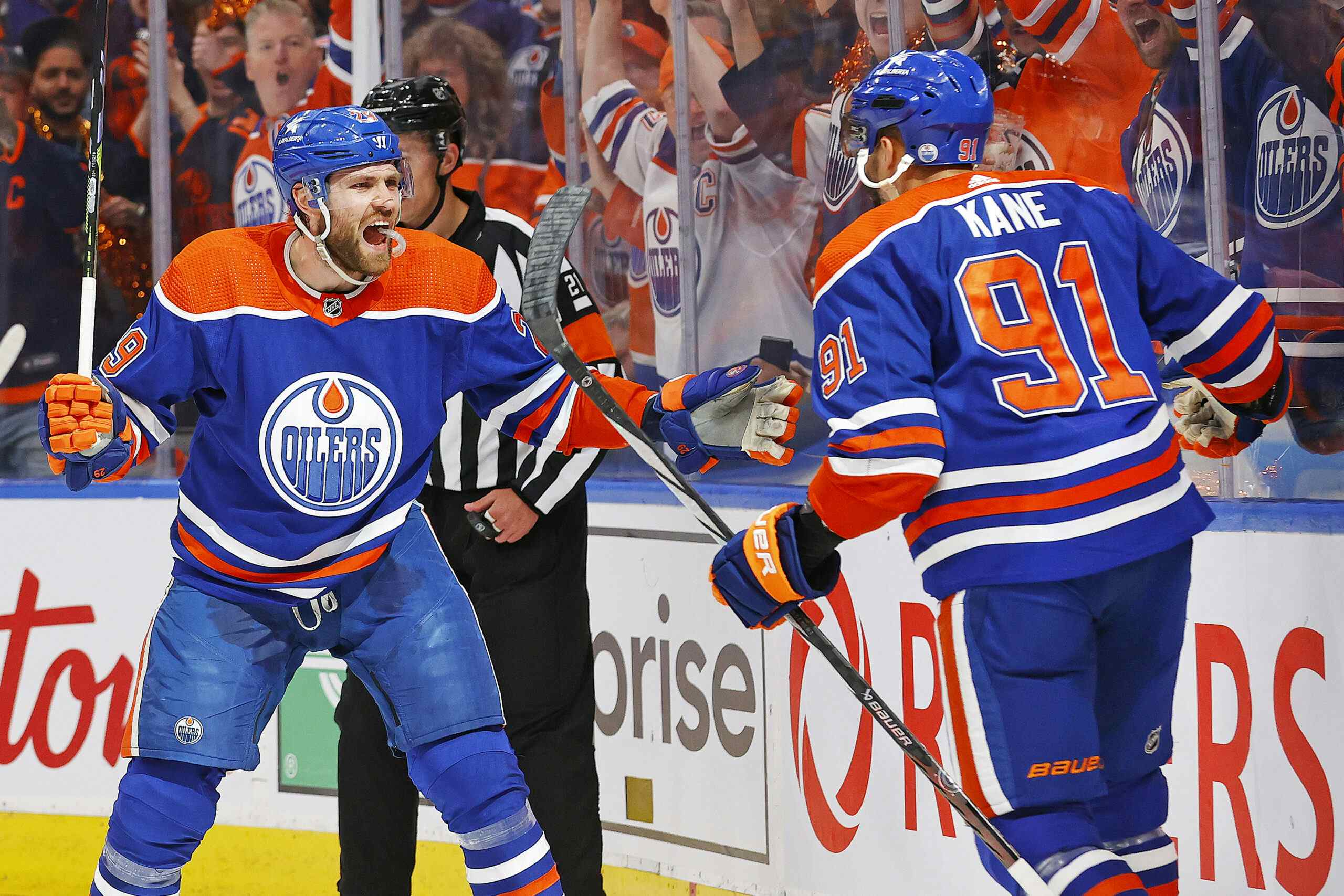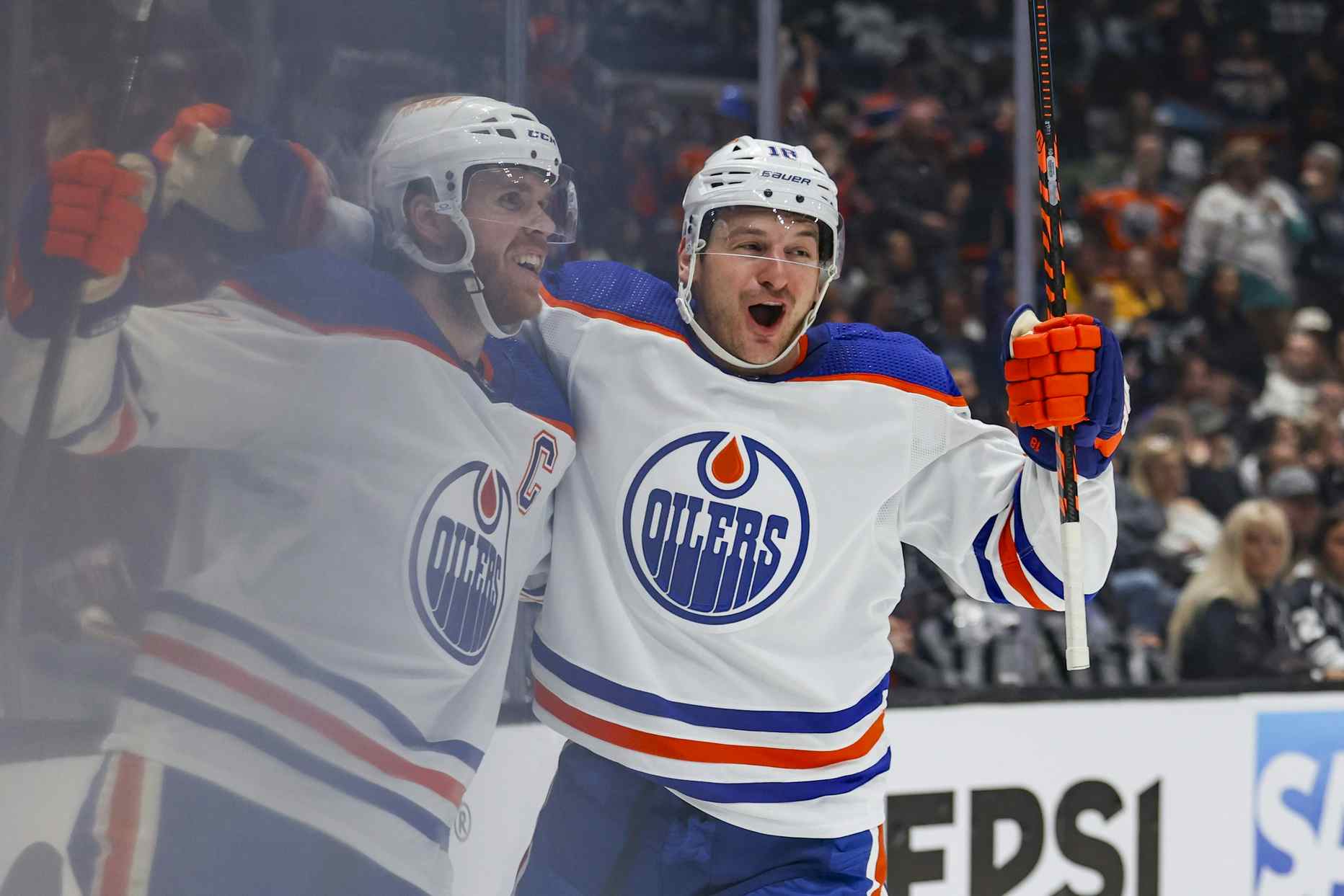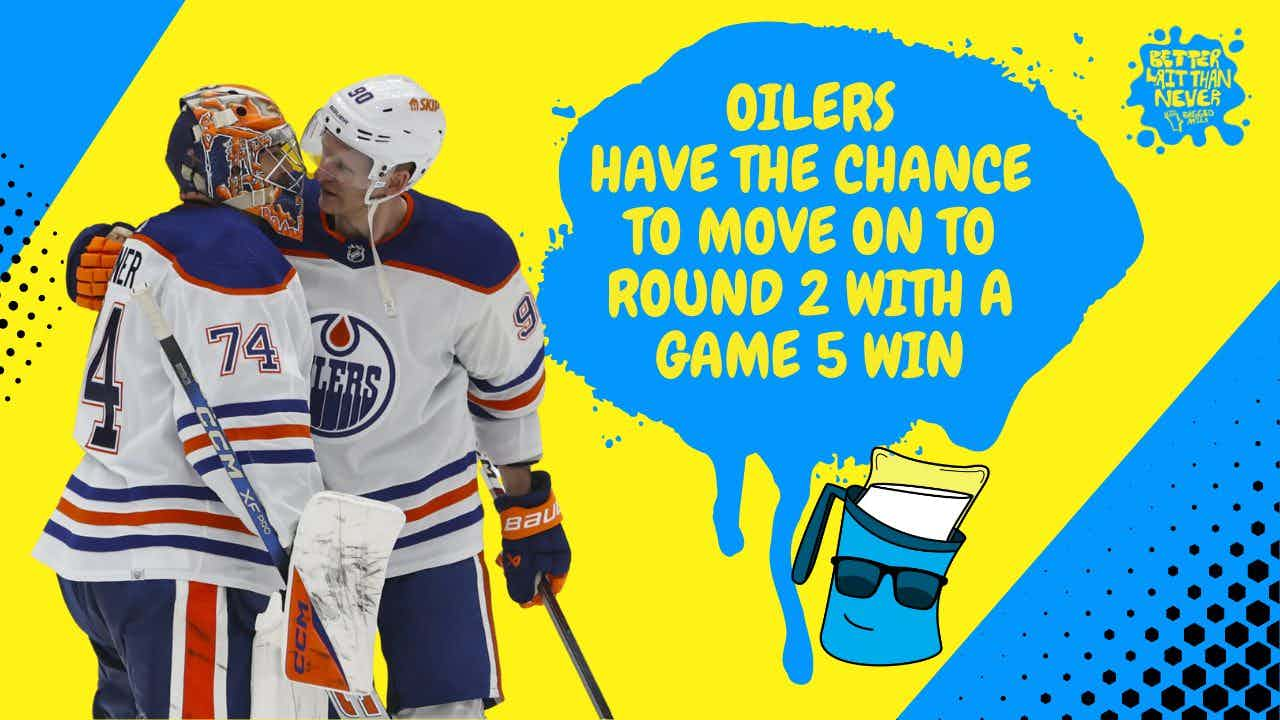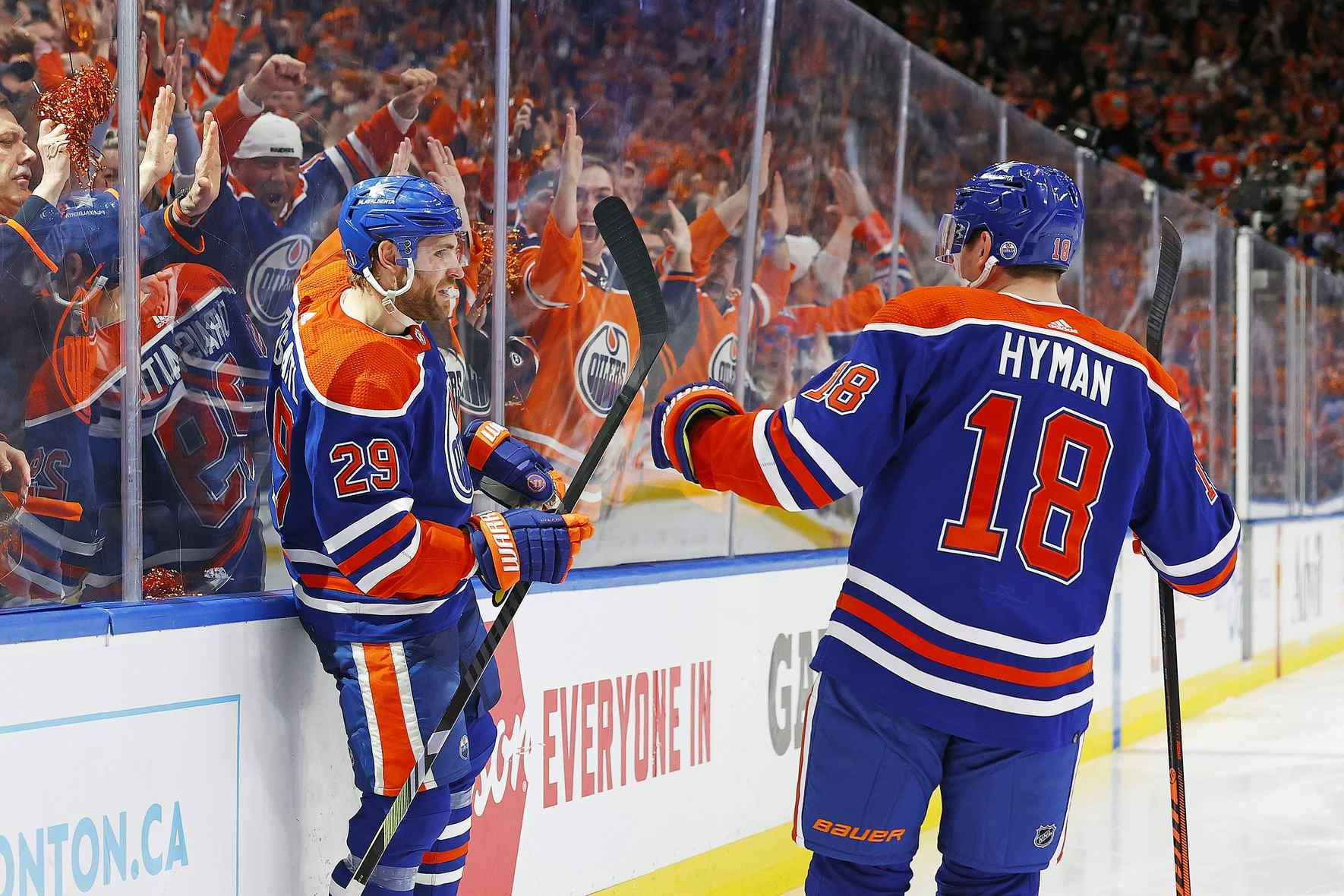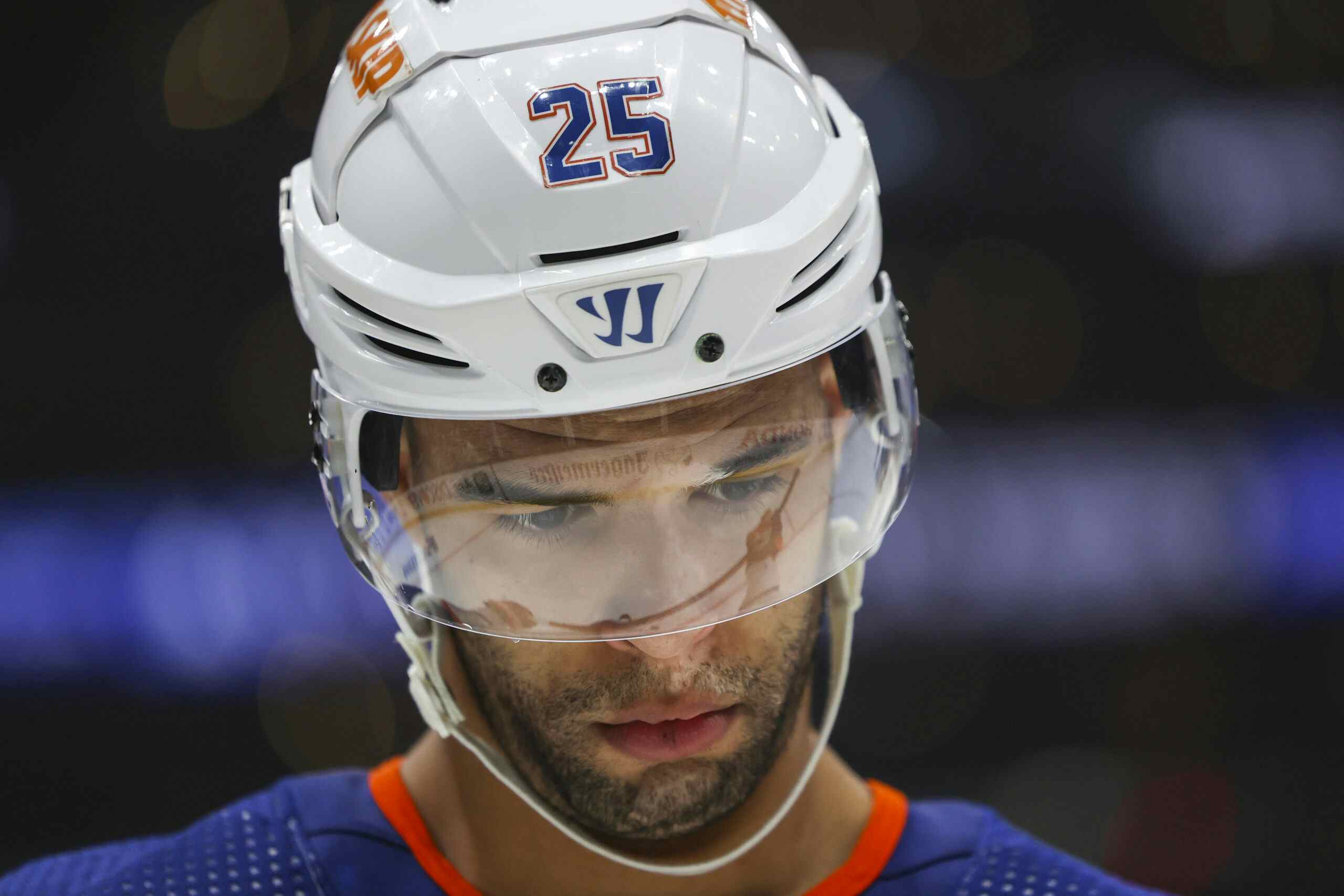Oklahoma Revival

One of the things the Oilers have done a much better job of since the hiring of Steve Tambellini is managing their affiliate in the American Hockey League.
Going back to when the Oilers stopped splitting a farm team with Montreal (the last season the two clubs shared an affiliate was 2002-03), there has been a constant theme to Edmonton’s AHL roster: youth will be served. There has also been a cause and effect relationship present: because the Oilers insisted on giving all the top minutes to young players, their AHL teams lost a lot of games.
Here’s the record for the Oilers’ AHL clubs from 2003-04 to the present day:
| Season | Wins | Losses | Ties | OTL | Goal Diff. |
|---|---|---|---|---|---|
| 2003-04 | 35 | 34 | 8 | 3 | -5 |
| 2004-05 | 32 | 33 | 4 | 11 | -22 |
| 2007-08 | 35 | 35 | — | 10 | -43 |
| 2008-09 | 24 | 44 | — | 12 | -70 |
| 2009-10 | 25 | 39 | — | 12 | -89 |
| 2010-11 | 40 | 29 | — | 11 | 11 |
(The Oilers did not run an AHL franchise between 2005-07.)
Back in the summer of 2008, there were a lot of us that felt rather unenthused with Kelly Buchberger’s coaching, but a couple of legitimate coaches (Jeff Truitt, Rob Daum) ended up doing a much worse job and I don’t think this can be hung on the bench bosses. The uptick occurred in the summer of 2010, where two (probably not disconnected things) happened: the Oilers fired Kevin Prendergast, who was responsible for the team, and they spent a lot of money on high-end minor league veterans – guys like Brad Moran and Alexandre Giroux.
Interestingly, however, the Oilers changed their approach a season before that uptick started. In 2009-10, the worst year under consideration, the first year that Steve Tambellini had all summer to tinker with the makeup of the professional teams under his purview, the Oilers went out and hired veterans. The difference is easy to see if we look at the players in key roles (top-six scoring forwards, top-two defenders, top goaltender) and their ages. Players over the age of 25 are in bold type:
| Team | #1 Scorer (F) | #2 Scorer (F) | #3 Scorer (F) | #4 Scorer (F) | #5 Scorer (F) | #6 Scorer (F) | #1 Scorer (D) | #2 Scorer (D) | #1 Goalie (GP) |
|---|---|---|---|---|---|---|---|---|---|
| 2010-11 Oklahoma | Giroux | Moran | McDonald | Hartikainen | Reddox | Omark | Helmer | Petry | Gerber |
| 2009-10 Springfield | Linglet | Wiseman | Fretter | Minard | Reddox | Trukhno | Armstrong | Wild | Dubnyk |
| 2008-09 Springfield | Potulny | Schremp | Stone | Trukhno | Brule | McDonald | Chorney | Peckham | Dubnyk |
| 2007-08 Springfield | Schremp | Pouliot | Reddox | Trukhno | Thoresen | Jacques | Kemp | Rourke | Deslauriers |
I think the contrast is obvious, and given the timing and the fact that Tambellini joined the Oilers from Vancouver – a club that has had almost uniformly successful minor league teams in recent years – it is difficult not to think that the credit for this recent emphasis on veterans and the relative success of the AHL club is if not mostly, at least partially, his.
The biggest impact of all these veterans, in my opinion, is the call-up factor. Omark and Reddox entered the season as legitimate AHL forces, and Hartikainen (coming over from some successful professional seasons in Finland) was a decent bet. All of them finished outside the top-three in scoring, but only because all of them had lengthy NHL auditions. In previous years, the loss of three quality young players would have crippled the AHL team – look at those Springfield teams from 2007-09 and picture them without the three most NHL-eligible forwards. With all due respect to Vyacheslav Trukhno, if he’s on the top line the team’s in trouble. But when players like Moran and McDonald never leave the farm, the ball keeps rolling.
The other item is that competition for spots on a professional franchise is a healthy thing. To make the jump to a successful NHL roster, young players need to surpass veterans. It’s a zero-sum game: for someone to go up, someone else must go down. Gift-wrapping premium ice-time in the AHL might seem like a good thing, but I tend to think that when a player knows his job is secure and that he’s going to be the first call-up, he has less incentive to work his butt off every step of the way than he would if he knows that the Oilers might recall Alexandre Giroux instead.
In short: the shift to veterans in the minors makes good sense, both from a developmental and from a ‘winning games’ perspective. Kevin Prendergast ran many poor AHL teams, and the fact that he’s no longer in charge is a positive. Steve Tambellini has been involved with successful minor league teams in the past, and it isn’t hard to see his fingerprints in the changes here. All of these things are to the credit of the Oilers’ organization.
Recent articles from Jonathan Willis

